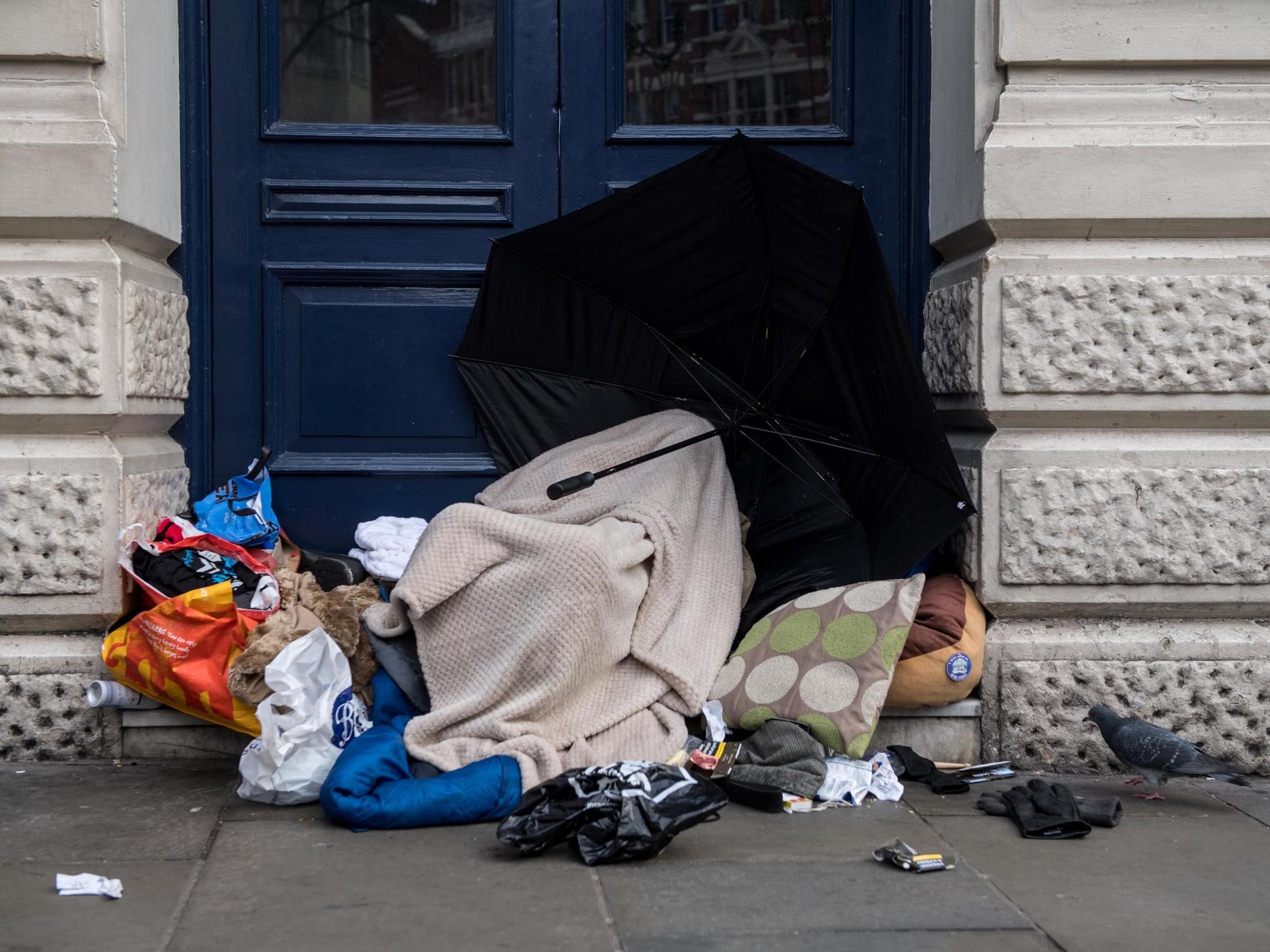Government cuts rough sleeping fund by up to £80m by scaling back tax on foreign home buyers
Labour accuses Theresa May of 'backtracking' on 'badly needed' money to tackle homelessness

Your support helps us to tell the story
From reproductive rights to climate change to Big Tech, The Independent is on the ground when the story is developing. Whether it's investigating the financials of Elon Musk's pro-Trump PAC or producing our latest documentary, 'The A Word', which shines a light on the American women fighting for reproductive rights, we know how important it is to parse out the facts from the messaging.
At such a critical moment in US history, we need reporters on the ground. Your donation allows us to keep sending journalists to speak to both sides of the story.
The Independent is trusted by Americans across the entire political spectrum. And unlike many other quality news outlets, we choose not to lock Americans out of our reporting and analysis with paywalls. We believe quality journalism should be available to everyone, paid for by those who can afford it.
Your support makes all the difference.The government has been accused of slashing homelessness funding by up to £80m after scaling back proposed taxes on foreign property investors.
Theresa May last year announced plans to charge overseas buyers of UK homes up to 3 per cent more stamp duty in a bid to stop them driving up British property prices.
The prime minister said in September the surcharge could raise up to £120m, to be spent on tackling rough sleeping.
But a consultation launched by the Treasury proposes only a 1 per cent tax hike, capping the potential fund at £40m.
Labour accused the government of “backtracking” on vital funding to help people of the streets despite soaring homelessness
The number of people sleeping rough in the UK has increased 165 per cent since the Conservatives came to power in 2010, according to official figures. A snapshot of a single night in autumn last year found 4,777 were sleeping on the streets, and charities believe that figure to be a significant underestimate.
John Healey, the shadow housing secretary, and Annaliese Dodds, the shadow financial secretary to the Treasury, this week wrote to chancellor, Philip Hammond, to express “dismay” over the decision to cap funds raised by the stamp duty hike.
In the letter, seen by The Independent, they said: “The backtracking on this proposed surcharge means much less funding for tackling rough sleeping compared to the maximum surcharge at the time of the prime minister’s speech.
“This money is badly needed given rough sleeping has more than doubled since 2010.”
Mr Healey told The Independent: “The prime minister now appears to be scaling back the extra cash she promised last year.
“It’s vital that Conservative ministers now back Labour’s plans to end rough sleeping, starting with a guarantee of emergency accommodation for every rough sleeper when the weather gets cold and 8,000 homes to keep people off the streets for good.”
The government unveiled proposals to hike stamp duty in light of evidence that overseas buyers of UK property “could be inflating house prices”. Ms May had said the surcharge would be between 1 per cent and 3 per cent.
But a Treasury consultation paper published in February made no mention of the higher figure and confirmed the surcharge ”will be at a rate of 1 per cent”.
Experts warned the lower rate would be ineffective at dampening house price rises, on top of raising less money for homelessness
Phil Hall, head of public policy at the Association of Accounting Technicians, told The Independent: “This reduction means £80m less for rough sleepers and is unlikely to reduce overseas residential property purchases enough to control house price inflation.”
He added: ”One of the key justifications for this policy was that it would help ensure those who live and work in the UK on a permanent basis are not disadvantaged by overseas property investors, but the proposals don’t appear to achieve this objective.”
Labour also questioned why the Treasury plans to class overseas investors as UK residents – meaning they can swerve paying the surcharge – if they live in the country for just six months. By comparison, the Home Office requires people to have spent five years in Britain to be considered for residency.
The letter to Mr Hammond said: “This appears to be one residency rule for the property-buying few, and another for the many others who wish to live in this country.”
A Treasury spokesman said: “We want to halve rough sleeping by 2022 and end it by 2027. That’s why we outlined a £100m rough sleeping strategy in August. In all, we’ve committed £1.2bn to tackle homelessness and rough sleeping over four years.
“As the PM announced, the money raised from the stamp duty surcharge will go towards tackling this issue.”
Join our commenting forum
Join thought-provoking conversations, follow other Independent readers and see their replies
Comments